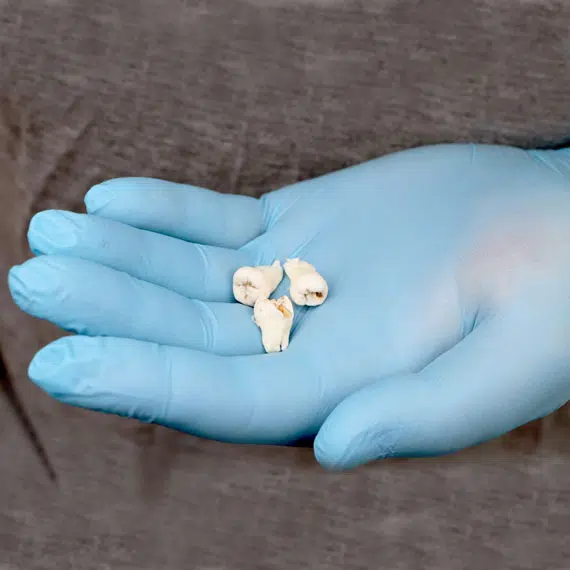Bleeding After Tooth Extraction: How to Stop It and What’s Normal
Bleeding after tooth extraction is common, but knowing what’s normal and what’s not can ease your recovery. If you notice tooth extraction still bleeding or molar extraction still bleeding beyond 24 hours, it’s important to monitor closely. Many patients ask how do you stop a pulled tooth from bleeding or how to stop bleeding after tooth extraction safely at home. In rare cases, tooth extraction bleeding after 4 days can signal complications. This guide explains what to expect, how long bleeding typically lasts, and when to seek dental care for post-extraction concerns
When bleeding typically stops after extraction
At Bellevue Azalea Dentistry, we usually give patients gauze pads to bite down on after tooth extraction. The gauze absorbs blood, and the pressure facilitates the formation of a blood clot. Three to four hours following the tooth extraction, the patient may remove the gauze. Some patients are alarmed when they observe what appears to be a considerable amount of blood following the extraction. But blood combined with saliva gives the impression that the extraction spot is bleeding more than it is. Residual bleeding might last up to 24 hours following the extraction in certain situations. If the severe bleeding persists, the patient may schedule an appointment as soon as possible.

Tips to prevent bleeding from reoccurring
After tooth extraction, a blood clot forms over the extraction site to guard and repair your underlying bone and nerve endings. This clot usually stays in position until your gums recover and your mouth returns to its original condition. But the clot may become displaced when drinking with a straw or eating hard snacks like chips. This may result in a painful condition known as a dry socket or alveolar osteitis. Dry socket is painful and may slow down recovery. It needs to be avoided. Here are some suggestions that may help prevent bleeding and dry socket after tooth extraction:
Avoid drinking through straws
The suction created by drinking with a straw may disrupt clot development or displace an existing clot. This may result in a dry socket. You may abstain from using a straw for at least three days to prevent this.
Do not smoke or use tobacco
People who smoke or use tobacco are considerably more likely to have dry sockets following tooth extraction. According to an NCBI study, dry sockets developed in 13% of people who smoked after tooth extraction. In contrast, just 4% of individuals who did not smoke experienced dry sockets. Also, rapid inhalation while smoking might displace a blood clot. Moreover, chemicals in other tobacco products may inhibit recovery and induce infection.
We recommend minimizing your cigarette consumption for a few weeks before an extraction. Your dentist may also assist you in developing a smoking cessation strategy. But if you don’t want to quit smoking, the following methods may help minimize your chances of dry socket:
- Change to a nicotine patch
- Smoking may need to be avoided for at least 48 hours following a tooth extraction
- If you intend to start smoking again following an extraction, ask your dentist when you will be able to do so
- You may request stitches at the extraction site from your dentist
- During smoking, hold the gauze pad over your socket
- Nicotine gum and chewing tobacco may also be avoided
Maintain proper oral hygiene
An effective strategy to avoid dry sockets is to maintain oral hygiene. Dental hygiene helps keep bacteria and infections from destroying the blood clot. Inquire with your dentist about properly caring for your teeth after surgery. They may advise you to merely rinse your mouth the first day and then brush softly the next. You may be given an antibiotic mouthwash to use following the extraction.
Eat soft foods
Consume only soft meals the first day following the extraction. Avoid soups since it may encourage sucking, which may displace the blood clot. You may also minimize the consumption of nuts, seeds, or hard meals like chips that may become lodged in your socket.
Conclusion
Tooth extraction may scare you, but you can be better equipped for a quick recovery by understanding what to anticipate. At Bellevue Azalea Dentistry, we walk patients through what they need to do to reduce bleeding after tooth extraction as soon as possible.
Call today to schedule a consultation! (425) 998-8109
Call today to schedule a consultation!
(425) 998-8109
Frequently Asked Questions
What Does My Dentist Need To Know Before A Tooth Extraction?
Before undergoing a tooth extraction, inform your dentist of your entire medical history. You may also inform your dentist about the drugs and supplements you use, and if you have any of the following conditions:
- Damaged or implanted heart valves
- A congenital cardiac defect
- A hip replacement
- Cirrhosis
- Immune system dysfunction
Does An Extraction Hurt?
No. Your dentist will use local anesthesia to ensure that you feel nothing during an extraction. Sometimes dentists may use sedatives for wisdom tooth extraction, so you may fall asleep throughout the process. After a tooth extraction procedure, you may experience the following:
- Bleeding, which may cease in a few minutes
- Pain that lasts for a couple of days to a week
- Inflammation
How Long Does It Take A Tooth Extraction Wound To Heal?
If you obey your dentist’s recommendations and take excellent care of the extraction site, the wound may heal in a few days. However, if the wisdom teeth are extracted, the wound may take a little longer to heal. The extraction site may be entirely healed and closed within a few months.
When Should I Call The Dentist After A Tooth Extraction?
After an extraction, it is common to have some discomfort once the anesthesia wears off. You may also expect some inflammation and leftover bleeding for the first 24 hours after having a tooth extracted. Yet, if the bleeding or discomfort persists longer than four hours after your tooth has been extracted, you may call your dentist. You may also contact your dentist if you have any of the following symptoms:
- Coughing, difficulty breathing, or chest discomfort
- Fever and chills
- Inflammation in the affected region
- Vomiting

